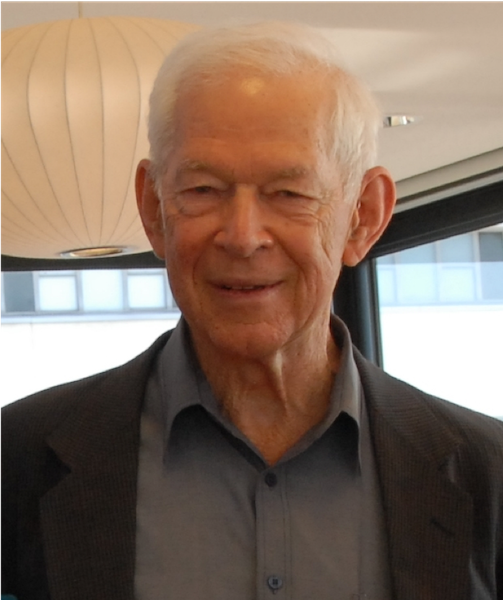Jubilee Fellow – 2015

Emeritus Professor John Nevile
BA (UWA), MA, PhD (UC Berkeley), Hon DSc (UNSW)
2015 Reflections
When I reflect on my time as member of the Academy the thing that stands out the most is the number of strong and lasting friendships that I made with other Academy Fellows. These were not only with those in macroeconomics, my own area of research strength or even among fellow members of Panel B, but equally with Fellows of many disciplines across the social sciences. These friendships were largely made in the first 20 to 25 years of my membership. In those years the Academy was much smaller and if one was active on Academy committees, as I was, there were a relatively large number of occasions when one met other Fellows.
Of course, there were, and still are, many other Academy activities which provide satisfaction, and indeed pride. Not the least of these is seeing increasing numbers of my former students elected as Fellows. However, rather than dwell on these I will make two further points both related to my receiving the Economic Society of Australia Distinguished Fellow Award for the year 2000. While there is no formal citation for this award the most important reasons are summarised in the Economic Society’s journal the Economic Record. In my case this summary was written by Ross Milbourne, a former student of mine who was elected a Fellow of the Academy before he became seduced by the chance to do more to change the world for the better in university management and was an outstandingly successful Vice Chancellor of UTS. And yes, in case you are wondering he was and is a good friend.
The summary by Ross starts “John Nevile is the father of both macro- econometric modelling and fiscal policy in Australia. He is also a passionate believer in economic justice and the role of economics in promoting the welfare of all, including the less advantaged members of society.” As is typical in such summaries, this was followed by a brief biographical statement designed to show how the recipient of the award became the economist with the characteristics that led to the award. Most of this is too technical for this piece but I will summarise one section in words that will be familiar to social scientists generally. In writing about an econometric model of the Australian economy that was described in an article published in 1962, Ross said that this was a model small enough for a user to be able to trace the causal mechanisms yet powerful enough to give results that could be used to determine economic policy. This combination has been my guiding principle in policy modelling ever since. As Ross notes the results of my econometric modelling have had important policy implications such as the finding that indirect taxes have more powerful effects on the economy than income taxes, a conclusion that was conveniently forgotten before the introduction of the GST.
There is one part of the brief biography that is relevant to the second major reason for the award. Ross notes that I am old enough to have some vivid memories of the depression in Australia. They are largely the memories of a preschool child but include some from the first two years at school. I was a university student before I realised what a hand to mouth existence my family lived in the 1930s (although both were university graduates) but that does not reduce the vividness of the childhood memories of the desperation of the unemployed. It is no surprise that the concern for unemployment, especially long term unemployment, has been at the centre of my policy prescriptions all my professional life.
There is another aspect of the economic and social justice part of my published work which goes beyond anything Ross said, and, to be honest beyond anything said in the longer spoken introduction to the actual award. I have published in journals, aimed at interested lay-persons not academic philosophers or theologians, a number of articles on economics and ethics more generally. While the theology is simple and obviously second hand, the economics is both more sophisticated but in words intelligible to those with little or no knowledge of economics. Sometimes parts of these articles have been quoted by professional theologians in articles also written for laypersons. This gives me significant personal satisfaction.